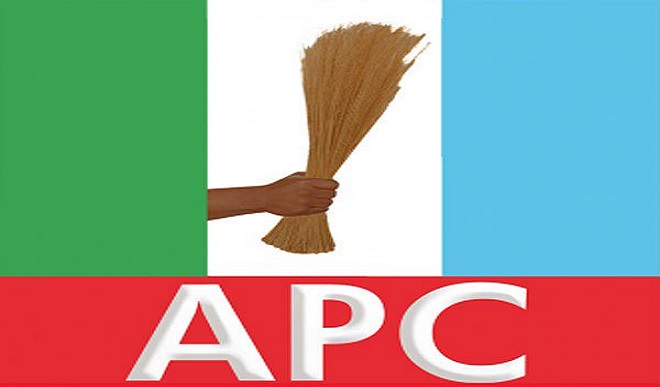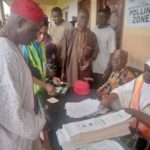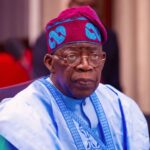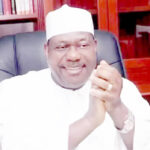It was a mark of statesmanship for President Muhammadu Buhari to have steered the ruling party leadership from an emerging mutually destructive brinkmanship and imminent “politicide” defined as additive acrimony and deafening collapse of compromise, comradeship and cooperation.
Once again it’s time we have an urgent quality control of the country’s democratic process through a strategic and systematic inculcation of “national ethics of discipline, integrity, dignity of labour, social justice, religious tolerance, self-reliance and patriotism as envisaged by Chapter 11 of the 1999 constitution dealing with the fundamental objectives and directive principles of state policy.
Against the background of recent mutual suspensions, serial protests at APC secretariat and eventual defection of Governor Godwin Obaseki of Edo State from APC to PDP, President Buhari last Tuesday presided over an emergency meeting of NEC of the party during which he advised members of the party to bury their hatchet, warning that “mutating disagreements have dire consequences and could lead to party self destruction”.
The president added further that the party’s gains could be reversed as conflicts often overshadow the primary objective of service to the people and urged members to refocus on “the larger picture and place more emphasis on uniting the party”.
The APC NEC eventually approved the immediate discontinuation of all pending litigation involving the party and its members; ratified the primary election conducted in Edo State; dissolved the current National Working Committee, and appointed a Caretaker/Extra-ordinary Convention Planning committee for the party, with the Governor of Yobe State, Mai Mala Buni, as Caretaker National Chairman, and Senator John Akpanudoedehe as designated Caretaker National Secretary.
Any crisis within a ruling party must be of grave concern because of its adverse implications for good governance.
A ruling party in crisis means actually a nation in “governance hemorrhage”.
I recall that the internal crisis, which rocked the ruling PDP created an atmosphere for deepening security challenges, the worst expression being the kidnapping of chibok girls in 2014 by Boko Haram militants, worsened corrupt practices and reversal of economic growth of earlier years from which he observed Nigeria had not yet recovered.
To this extent, President Buhari has not just saved his party from self-destruct ( his words! ) but has commendably inadvertently refocused the attention of all Nigerians to the current challenges of governance, the worst manifestation being the huge spikes in COVID:19 infection and fatality rates.
It’s time the party and other parties support the ongoing commendable interventions of the Presidential Task force(PTF) and constructively interrogate the newly announced complementary Economic Sustainability agenda.
Notwithstanding the ongoing political discordant voices within the ruling parties at national and state levels, Nigeria remains the largest democracy destination in Sub-Sahara Africa.
The country has as many as 80 million voters, 18 political parties after the Independent National Electoral Commission (INEC) had deregistered 74 political parties, thousands of old and new breed politicians, hundreds of legislators and governors as the “strengths” of Nigeria’s uninterrupted civil rule since 1999.
However, it is regrettable that political entrepreneurs and insular political warriors had since replaced genuine patriotic farsighted politicians of the first and second democratic republic.
Most today’s politicians stood for no principles making them vulnerable to everything dysfunctional inclusive of self destruction.
It’s time for “quality democratic process” in which values and ethics in terms of ideology must return to politics and politics must return to ethics and ideology.
More than ever before, Nigerian political class suffers insufficiency of tolerance, blind ambition without vision.
There is absence of the much needed compromises, patience with abundance of unacceptable deficits of patriotism and cooperation needed for nation building.
There is an urgent need for a new political movement for a truly progressive Nigeria.
Nigeria is deriving with new democratic culture that serves the people, the people, the people before self.
It’s time to give meaning to the first stanza of the national anthem: Arise, O compatriots, Nigeria’s call obey, To serve our Fatherland, With love and strength and faith…
As a comrade, I have been inundated with partisan banters and innuendos about the failures of comrades in politics citing perceived failings of Adams Oshiomhole in politics. On the contrary, the challenges facing Oshiomhole- led APC shows that democracy is too important to be left to any group whether businessmen, contractors, lawyers, ex-military men, trade unionists or comrades.
Democracy is about inclusion, contestation and those who win and ask for equity must come with democratic clean hands, failing which they face the consequences regardless of who they are.
The recent events are not unexpected but certainly far from being inevitable.
I have never been so “compromised” as a commentator, precisely because am a participant-observer.
Precisely, because yours truly is involved in the Edo project, my partisan bias is predictable for partisan observers.
Since 2008, my commentaries on Edo could make for a chapter in my revised reflections on good governance and democracy.
With benefits of hindsight today, it is self-evident that good politics and good governance makes for good partisan commentaries.
Conversely, acrimonious and polarised politics even with good governance makes best of commentaries and reflections an uphill task.
But even at that, I saw it ending in this peculiar mess. (See Daily Trust, February 10th, 2020 entitled Edo: Politicide or political renaissance?).
Earlier on June 25, 2018 in my reflection entitled Adams’ APC: An agenda, I was the earliest enthusiastic supporter of Oshiomhole as the second chairman of the ruling APC, in the belief in his capacity as a former Union organiser, bargainer, negotiator and statesman, globally adjudged two term successful Edo governor, with rich background in the art of consultation, democracy, team work, persuasion to reinvent APC.
However, all progressive forces are saddened that Oshiomole would preside over a ruling party the trade marks of which are whimsical recourse to extra- constitutional legal pursuits with conflicting judgements, (not justice), commercialisation of nominations and candidatures, routing candidates through sensational findings on certifications even when Supreme Court had pronounced on the stupidity of papers fetish.
There are so many whispers that all politicians are corrupt without credibility, scandalously a perception that comrade Adams who prevented an erection of a status of a godfather in Edo would end up keeping elected legislators in Abuja for whatever reason instead of encouraging them to play politics at home.
Nigeria and Africa need more tested non-state civil society actors in governance to uplift Africa from underdevelopment and inequality into prosperity and equity.
South Africa just elected Comrade Cyril Ramaphosa, as the new South Africa President having also won as the Deputy President of the ruling African National Congress (ANC), the oldest political movement in Africa.)!
Great pioneer unionists like the late Michael Imoudu and Wahab Goodluck were active partisans who fought for independence and democracy with great politicians like Nnamdi Azikwe in NCNC.
It was gratifying that immediate-past National Chairman of the All Progressives Congress, Adams Oshiomhole, has accepted the decision of the party’s National Executive Committee that dissolved the ever rowdy clumsy National Working Committee, which he chaired.
He even commendably told his lawyers to withdraw all suits in court in obedience to the appeal of the president that all contending parties within the party withdraw their cases from the court.
It’s now time for a bipartisan governance to fight the scourge of COVID: 19, damn the virus and ensure sustainable livelihoods through the new economic sustainability plan.

 Join Daily Trust WhatsApp Community For Quick Access To News and Happenings Around You.
Join Daily Trust WhatsApp Community For Quick Access To News and Happenings Around You.


